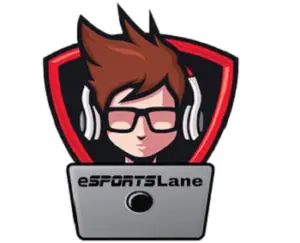Looking to become an eSports journalist, or have just started out on that journey and trying to understand what’s the best way forward? Here’s our step by step guide on one of the ways you can kick-start your eSports journalism career.
I started out as a journalist a few years ago when my educational background was anything but that. In order to get freelance gigs, I would dedicate 30-45 minutes every day in emailing sports websites, crisply explaining why I was emailing in and my experience along with links to a few posts.
10% of those people replied. And about 20% of those 10% offered me something substantial. In short if I had applied to 100 websites, I got an affirmative answer from two of them. That’s how tough it is at times, especially as a freelancer.
However, I never lost my patience; working with those two clients I built my portfolio and then when I started re-approaching prospective clients again with a more attractive portfolio, it became easier to get heard.
When I started out, I wanted to write only analysis pieces because it sounded attractive but with time I started to understand a business’ perspective. A website needs news articles as much as it needs features and analysis and then there’s always a need for previews and match reports and interviews.
Those early days taught me not to be a one-show pony.
Sports journalism in general and eSports journalism in particular isn’t easy; let nobody fool you into believing it’s a bed of roses. But if you are passionate enough, have a solid base and possess that hunger to keep improving, not much can keep you down.
Here’re a few pointers to keep in mind if you are looking to attempt making journalism in eSports as your career. Some of these are specific to eSports journalism, others are more generic in nature, nonetheless they are very important.
Table of Contents
Just Start…
Imagine this. You know your eSports. You are probably even very passionate about it and a brilliant analyst of the game. You are looking to apply to a publication to get some journalism or content creation work.
How do you manage to convince them to hire you? Some are better at doing that but even to set up that first meeting, wouldn’t it be nice to exhibit your skills?
This is why start building your portfolio even before you look at paid opportunities. Write your own blog or start your own YouTube channel or even a podcast where you give your opinion or analyse a game so that when needed you can use this same portfolio for your prospective client.
If you get an opportunity to cover any local tournaments on a volunteer basis, do that a couple of times to begin with too.
It’s a tough job to work without a fee but the opportunity to rub shoulders with the players and others involved in the tournament is not one to miss. Not just for your personal résumé but also for the experience it brings with it.
Be Consistent, Post Regularly
One swallow never made a summer. Similarly, if you expect companies will come knocking at your doorstep just because you have half a dozen blog posts or a couple of podcasts uploaded, you might be far off the mark.
Keep writing, keep uploading your best content possible, and keep experimenting. Give yourself a goal, say of writing one piece a day or three a week and stick to it come rain or sunshine.
Try out opinion pieces, write the odd feature or player profile, see if you can attempt taking the interview of some of the best players in your region, look at doing a statistical analysis of a game or write a plain report, preview a tournament if you please…
…just keep building that portfolio even if the odd company offers you a role.
I know of a few bloggers who have reached so much following on their sports blogs that they have had publications reach out to them with offers instead of the other way around. Why? Because they aren’t just good, they also have a following of readers.
It doesn’t happen that often but consistency in delivering content goes a long way in giving a prospective employer an insight about how you operate.
Read a Lot. Like a Crazy Lot
This is one advice I would give to all budding journalists and even those with some experience. Read as much as you possibly can. There are multiple excellent reasons to read but two most vital ones are they provide an excellent perspective and help improve one’s own language.
While starting out, most of us could have a very narrow view of what journalism is, what writing a good content piece is and only with consist reading can one open one’s eyes to what’s the best and what’s not up to the mark.
Similarly, I have found a lot of the improvement in my language came as I read more and more on topics I like. eSports is not the only sport I have covered in my career, and the sports which I consider myself to be a better journalist at are also those which I have read a lot about.
Become an Expert at Your Game
Needless to say, you need to be an eSports or a gaming fanatic.
While I wouldn’t necessarily go up to the extent of saying you should have been a regular gamer because I know of those who haven’t been gamers and still carved out a decent career as journalists, it really pays if you have had a more than fair share of having done that.
If you are a senior journalist who has been covering other sports or may be even a totally different line, it probably becomes easier to make a switch to eSports without having really been very involved in the game (and yet there is an obvious transition period for it).
However, since we are talking about beginners, the best way to approach an eSports journalism career is to be proficient in at least one game. You would have played it at a certain level and watched it as passionately as well and have an opinion about it.
Don’t be a One-Game Guy (or Girl!)
Yes, it pays to be an expert at one game when you are starting out and building your brand. But as you are adding to you portfolio, say on your own blog, it makes sense to also start following other games.
Again, that wouldn’t be an overnight change and at times it’s tough enough to cover one game in eSports but doing so helps in a couple of ways. One it gives a macro-level perspective of things and secondly it enhances your own reputation as someone who’s adaptable.
It also creates a back-up in case you want to make a switch or the work as a freelancer reduces on that particular game.
Patience is a Huge Key

I mentioned it earlier, and it’s worth repeating that line. One swallow, summer. Don’t expect instant success.
You could be an amazing gamer but writing, content creation and journalist is a different kettle of fish. Dedication to honing your skill is a necessity, making mistakes is a part and being able to get back up from setbacks much needed.
And to be able to go through this process will be a test of your patience. If you are giving it a shot, give it your best one because without that it wouldn’t make too much sense and there is every possibility you are found out.
There are Good Days and There are Other Days…
This is something not restricted to just eSports but freelance journalism in general. Some days your words could flow and you would have written a piece you are amply proud of while there would be other days when ideas would cease to enter the recesses your mind.
That’s how it is with journalism and the more you get experienced, the better you would get in understanding the nuances of tackling both.
Stick to your plan. Stick to the goal you had decided on (say three pieces a week for your blog). You will thank yourself later if you are serious about making a career as an eSports journalist.
Read (and Re-Read) Your Own Stuff
Nobody is perfect and we all have been guilty of making typos and other errors which might not be caught in the first attempt. To begin with, you might not have the luxury of an editor to go through your piece which is why it makes for a lot of sense to read your own article multiple times.
The best way to go about it is to fact-check the article and sub-edit for typos before you publish it but don’t restrict it to that; do have a read even after you have published it on your own blog.
Ask for Feedback & Help
Feel free to reach out to people to get feedback on your work.
This could be from the point of the language itself, or if your analysis has been on the money or even from senior journalists who would probably have a better idea of what works and what doesn’t.
Speak to fellow gamers and journalists, tweet links of your work to your followers and to those you follow and might be able to add value to your work.
Not all will reply, and that’s only fair because time is precious for everyone but who knows the work might catch the eye of someone who has something of value to offer by the way of feedback.
Similarly if you are stuck with an idea and finding yourself unable to develop it, see if you are able to talk to someone in the industry. You never know you might discover a gem of a piece.
Network, Talk to People, Go to Local Tournaments
It’s easier to email or DM someone on social media than to talk over a phone call or to go to tournaments and seek them out. Still, don’t hesitate to opt for the latter options.
I will let you on a secret. I have set up a bunch of sports-related websites and a couple of them reached a substantial level of following whereby we had to start hiring a dozen writers over a period of a few months. Our ‘careers’ page would get tons of applications every single day.
We tried to go through every single one of them but it’s not always that easy, especially when a website or a publication grows to crazy levels.
In fact it’s easier to miss out on some good ones at times (our loss!) and to cut a long story short, unless a website is actively looking for applications, there is every chance your seek-out might even get lost amidst the so many others.
At times, it makes sense to search for the publication’s phone number and try and talk to the editor. Or if they are in the same region and cover tournaments, try and meet them in person without being too pushy try and present yourself as a possible candidate.
Develop Additional Skills
This might not really be a part of a beginner’s tips to becoming an eSports journalist but if you can develop a desire to pick up an additional, peripheral skill, then it is a brilliant sting to your bow.
For instance, if you a podcaster, all that effort in getting your technology right when you cannot afford to hire a technical expert, would go a long way for the future. Similarly, if you can understand the nuances of SEO while running your own blog, it could be an additional skill you could use to sell your work to a prospective client as well.
Final Thoughts
If you are wondering whether a journalism degree is essential to succeed as an eSports journalist, my thoughts on it are they aren’t an absolute must. Sure it guides you in the right direction and is a very natural form of networking, but if it’s past you, do not worry too much. There are many a journalists I know who weren’t trained to be one and they have done just fine.
If you are in the UK and are wondering if you can make a career out of eSports, you could look at our exhaustive guide which enlists the UK universities and other educational institutes offering courses on eSports.


